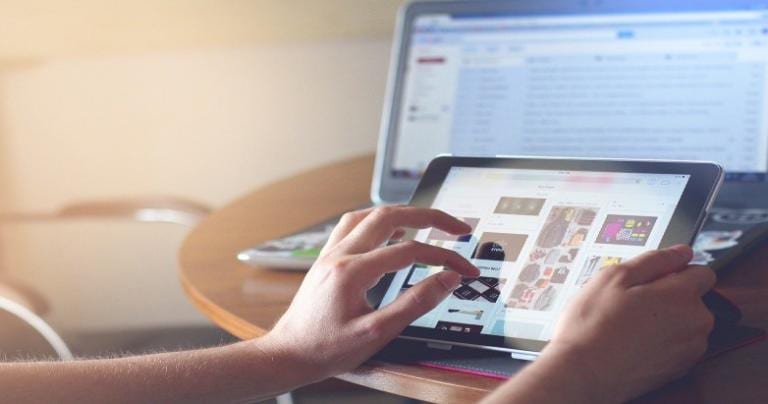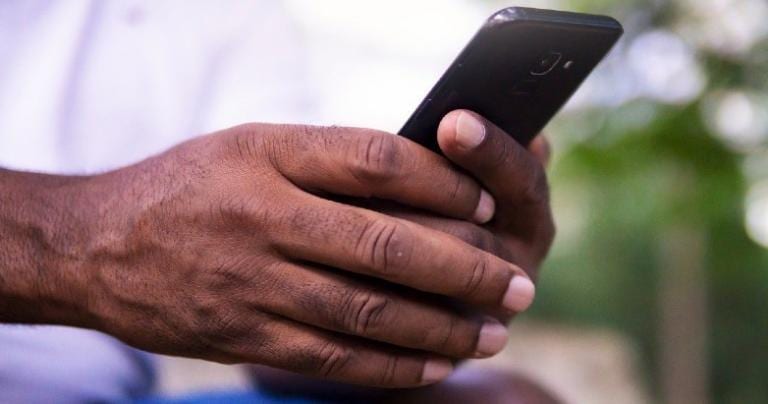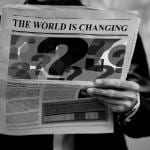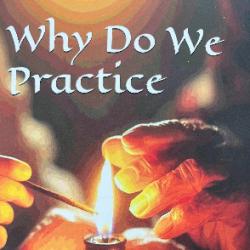I read an interesting column piece written by Tracie D. Hall in the September 2020 issue of American Libraries yesterday, titled “Necessary Trouble: Eradicating Information Poverty.” Hall puts forth two questions to their readers:
What does a two-generation-long exclusion cost a community, and how does it contribute to the information poverty that libraries exist to mitigate? How do library policy, practice, and perception longitudinally impact usage by the individuals and communities most likely to have limited information access points and networks?
The point being made here is that libraries should exist as centers to serve their communities but history has proven this to be false in some cases. Disparities in racial privileges has greatly contributed to the inequalities that exist in information access. Those same barriers further add to wide gaps in education, health, finances, and technology between white people and BIPOC.
Information Privilege Defined

Information privilege “is defined as that situation in which individuals and communities, within a given context, do not have the requisite skills, abilities or material means to obtain efficient access to information, interpret it and apply it appropriately. It is further characterized by a lack of essential information and a poorly developed information infrastructure” (Britz, Journal of Information Science, 2004).
What does information privilege look like? It looks like having reliable access to the Internet at home, owning a relatively new smartphone with a decent data plan, owning a computer, and being able to purchase most books that you want instead of borrowing them. Information privilege also extends to who we have access to for information. If you’ve attended college, or personally know educators or healthcare workers, then you are already more privileged than most. The fewer barriers that you have to accessing information, the greater your privilege. It’s a sliding scale and we’re all on it somewhere.
Information Privilege Exists in Paganism
We see evidence of information privilege in our schools, jobs, healthcare, criminal justice system, and more. I argue that it’s evident in paganism, too, with our culture’s emphasis on owning and reading tons of information related to our practices. In some of our circles, we like to tout how much knowledge we possess of certain authors and their work. We use social media to brag about how many volumes of obscure grimoires we own and to share pictures of our personal pagan libraries. Our libraries have become symbols of all the knowledge we’ve accrued and we want others to acknowledge it in some way. Few of us are willing to state the obvious, though: it takes money and time to know or own all that shit. Privilege affords us both of those things.
I’m not saying that all pagans are wealthy but I am saying that most individuals who are pagan are also very privileged. We’re privileged to have the money to purchase our knowledge or have easy access to it. If we’re not buying the books we want then we’re getting them through our friends or reading them online with services like Amazon Kindle or Scribd. Most of us have smartphones and computers to access information from the comfort of our own homes, too.
People without smartphones, computers, or consistent access to the Internet tend to be African Americans and Hispanics, according to this 2019 survery article by the Pew Research Center. White people make up as much as 85% of the “new age” movement (Pew’s phrasing, not mine) and are also the same people who benefit from information privilege in paganism. Read on to better understand some of the circumstances surrounding information privilege in paganism.
The Library as a Privileged Space
The history of libraries is long, but it’s worth noting that the majority of that history served white, privileged people. For the longest time, only certain classes of people could read or write. Men, nobles, and priestly classes were entitled to reading and writing first, long before women were allowed. And, even when women were allowed to read and write, only those who were upper-class and white were educated enough. Historically, libraries were privately owned and funded and were not open to the public. The only people that could afford to own a library were royals, aristocrats, and the upper class. Owning a library was a symbol of status and privilege openly displayed with rows upon rows of collected knowledge. Reading the books didn’t matter as much as owning them. The financial value of a library was, in most cases, directly proportional to the financial wealth of a family.

Public libraries didn’t exist until the late 1700s and even then they mostly served wealthy white men. Women of elite classes could volunteer at public libraries but they couldn’t officially work in them until the 1900s. The only people patronizing public libraries were white people who could read until after the Civil War. In 1896, Plessy vs. Ferguson allowed segregated facilities to exist for African Americans, including schools and libraries. The funding for these facilities was substantially less than that of whites-only facilities, however.
Public libraries did not desegregate until the Civil Rights Era of the 1960s. However, these spaces were still suffering from a history of under-funding. Imagine only having access to materials that are decades-old and dingey. Think of how many decisions you’ve made in your life based on information you read somewhere, likely online. Now imagine trying to make life decisions based on information published twenty-plus years ago. That’s the predicament African Americans have faced and they’re still experiencing similar disparity today.
For more information on the history of public libraries in the United States, check out this online exhibit hosted by the Digital Public Library of America.
The Digital Divide
Pew Research Center published results of a survey done in 2019 on the usage of mobile devices and the Internet in African Americans. The results showed that African Americans are more likely to use their smartphones than computers to browse the Internet. African Americans are more likely than White people to use their smartphones to do research activities related to health and looking for work. Lastly, the survey also showed that African Americans and Hispanics are more likely than White people to have their phone service shut off because of expense. These survey results show that money is the big barrier. What I think the survey really uncovers is that impoverished People of Color have less opportunities to access information than White people.

Today, we use our smartphones for everything: social media, email, contacting family and friends, and looking up information. Many of us own both a smartphone and a computer, or have access to a computer at our jobs. For many BIPOC, there may only be one computer per family unit or none at all. Public libraries offer computer access, though there are time limits and restrictions. These restrictions can impact the amount of time a person has to put in job applications, do research, etc.
Using one’s smartphone to write resumes, cover letters, and fill out job applications can be incredibly challenging and frustrating. It makes sense to do that kind of business on a computer, but gaining access to one can be difficult for impoverished people. Additionally, people who only have Internet access through a smartphone use quite a bit of their time researching health-related issues because many of them do not have health insurance. Information poverty is systemic, y’all.
How Can We Help Bridge the Digital Divide?
- Donate.
- Consider donating your pagan books to public libraries, family shelters, correctional facilities, CUUPS chapters, or community college libraries.
- A recent poll that I took on my Instagram revealed that many of my followers do not donate or sell their old pagan/witchy books. We hoard our books like trophies of our knowledge. Please donate the books that you’ve already read to people who aren’t privileged enough to own them.
- Note: while books donated to libraries may end up in their book sales, the funds collected from those sales directly benefit the libraries. That, and whoever buys your old book just got it at a discounted price. Win-win.
- Consider donating your pagan books to public libraries, family shelters, correctional facilities, CUUPS chapters, or community college libraries.
- Volunteer.
- Volunteer at your local library to teach people how to use the computer and other technologies. If people have a better relationship with technology then they’re more likely to use it and benefit from it.
- Volunteer your time at your local library to assist people in doing job searches or creating resumes and cover letters.
- Volunteer your time at adult retirement centers. Older generations often own smartphones but only a small percentage of them actually know how to use them. Help them connect with family and friends!
- Support.
- Support equity in your community through involvement in local legislation and activism groups that benefit BIPOC.
- Consider borrowing books from your local library instead of buying them. Libraries need the stats for funding and greater funding means better resources for those who need them.
Follow me on Instagram @thegardnerianlibrarian














